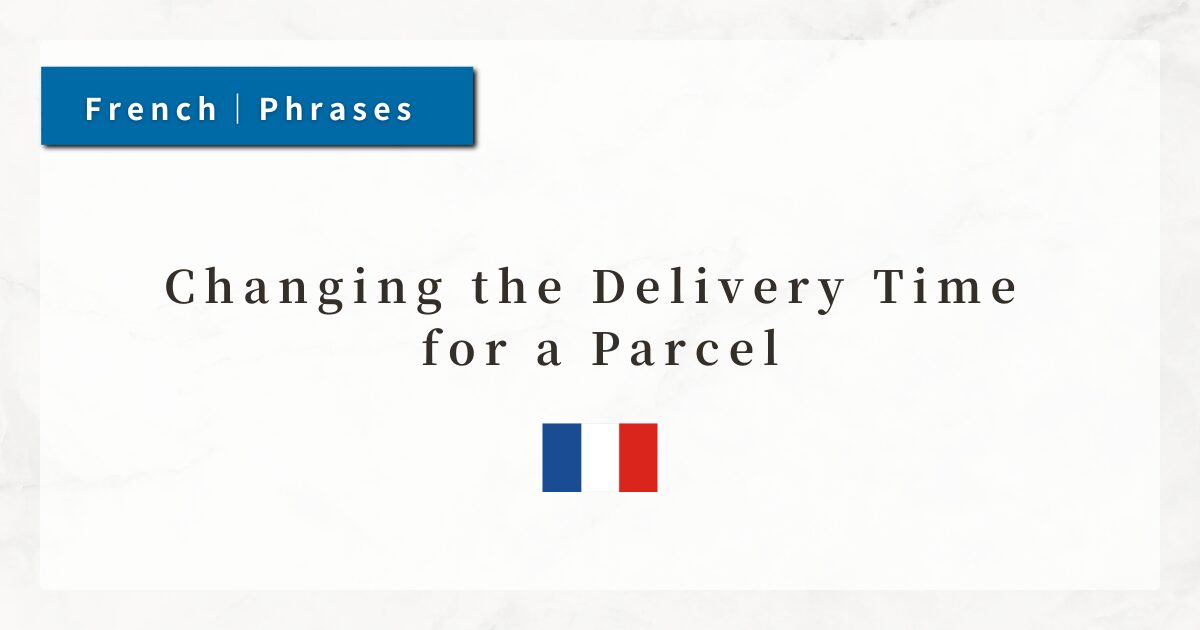#3 Useful Phrases for Buying Train Tickets|Practical French Expressions

When traveling within France, many visitors use the railway network.
There are various types of trains depending on your destination, such as the TGV (high-speed train) and the TER(regional train).
When purchasing a ticket, however, you need to communicate your destination, whether you want a one-way or round-trip ticket, and other details in French.
This lesson introduces useful expressions you can use at the ticket counter.
Dialogue

Bonjour. Un aller-retour pour Lyon, s’il vous plaît.
(Hello. A round-trip ticket to Lyon, please.)

Pour aujourd’hui ?
(For today?)

Oui, je voudrais partir vers 10 heures.
(Yes, I would like to leave around 10 o’clock.)

Très bien. Première ou deuxième classe ?
(Very well. First or second class?)

Deuxième classe, s’il vous plaît.
(Second class, please.)

Voilà votre billet. Le quai est le numéro 5.
(Here is your ticket. The platform is number 5.)

Merci beaucoup.
(Thank you very much.)
1. Asking for a Round-Trip Ticket
The word aller-retour combines aller (outward journey) and retour (return journey), meaning “round trip.”
By adding the indefinite article un, you get un aller-retour = “a round-trip ticket.”
- Un aller-retour pour Lyon.
(A round-trip ticket to Lyon) - Un aller-retour pour Paris.
(A round-trip ticket to Paris) - Un aller simple pour Nice.
(A one-way ticket to Nice)
2. Polite Expression of Desire
The phrase “Je voudrais 〜” is the conditional form of vouloir (to want), and is a polite way to express desire, similar to “I would like 〜” in English.
- Je voudrais réserver une place.
(I’d like to reserve a seat.) - Je voudrais acheter un billet.
(I’d like to buy a ticket.)
In the dialogue, “Je voudrais partir vers 10 heures” means “I’d like to leave around 10 o’clock.”
Here, “vers + time” expresses approximation (around/about).
3. Asking About Classes
French trains generally have two classes of seating:
- Wider seats, quieter, more comfortable atmosphere
- Higher price
- Standard seating, more affordable
- Chosen by most travelers
The ticket clerk’s phrase “Première ou deuxième classe ?” means “First class or second class?” The word ou means “or,” just like in English.
4. Common Vocabulary at the Station
At French train stations, the platform is called quai (pronounced “keh”), equivalent to “platform” in English.
- Le quai numéro 5.
(Platform number 5.) - Le quai numéro 1.
(Platform number 1.) - Le quai numéro 7.
(Platform number 7.)
The word numéro means “number.” Announcements at stations frequently include platform numbers, so it is useful to be familiar with them.
Summary
- Un aller-retour pour Lyon, s’il vous plaît.
→ “A round-trip ticket to Lyon, please.” - Je voudrais partir vers 10 heures.
→ Polite request, “I’d like to leave around 10 o’clock.” - Première / Deuxième classe ?
→ Asking which class (first or second). - Le quai est le numéro 5.
→ Indicates the platform, essential travel information.




